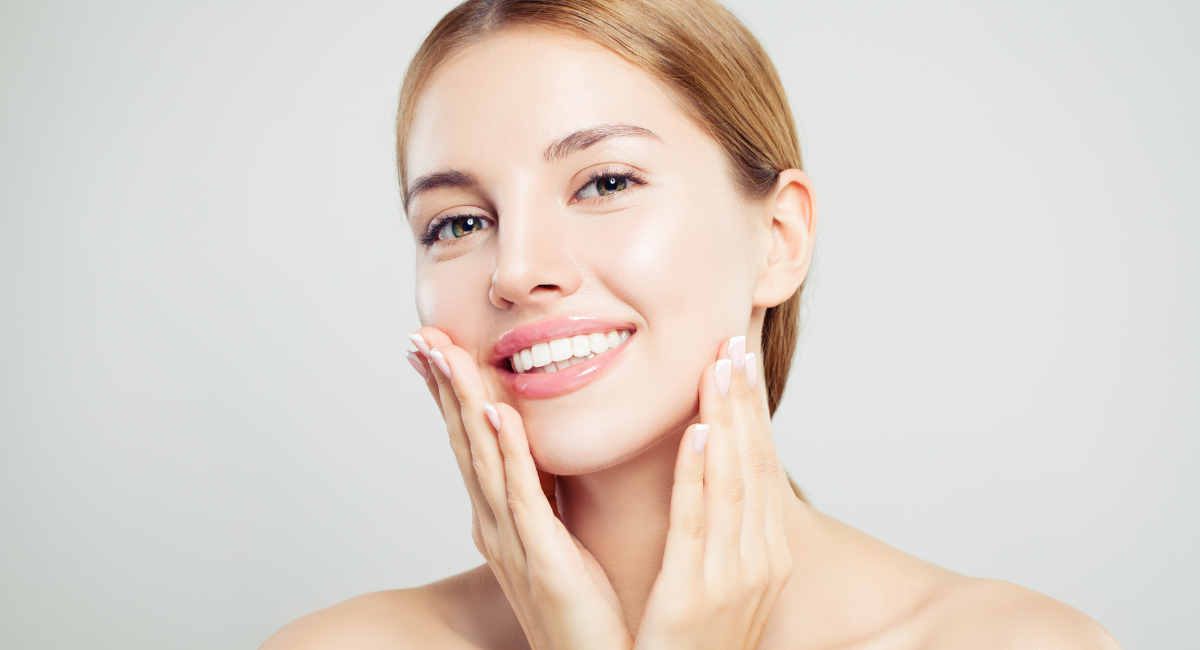Are you using retinol as part of your daily skincare routine yet? If not, it’s time to look into it.
You probably heard of retinol before, especially if you use skin care products. Retinol is one of the primary forms of Vitamin A, and is a member of the retinoid family. Retinoids are known for stimulating collagen synthesis and can increase cell turnover. They also come in many forms, so if retinol or one of its family members doesn’t agree with your skin, there’s almost certainly one that does.
Here are 7 benefits of retinol and retinoids.
1. Retinol Has Anti-Aging Effects
When it comes to skincare, retinol is one of the most thoroughly studied anti-aging ingredients around. Retinol combats free radicals that cause collagen damage in your skin. You begin producing less collagen as you get older, so retinol helps maintain your collagen stores and helps you produce more. It also thickens the layer of your skin, where wrinkles and fine lines tend to form, smoothing them over.
2. Retinol Helps Even Your Skin Tone
In addition to smoother, thicker skin, retinol increases skin cell turnover, allowing you to experience an exfoliating effect. Exfoliation removes dull, dry, and dead skin cells from your skin’s outer layer. This improves blood circulation, brightens your skin’s appearance, and evens out your skin tone.
3. Retinol Clears Acne and Prevents Future Outbreaks
Retinol unclogs your pores and clears your skin. It’s often effective even against treatment-resistant acne. You can enhance the effectiveness of retinoids by using it with other treatments and enjoying compounded benefits.
Retinol works in perpetuity. The less acne you have, the fewer acne scars you’ll experience, and the more confident you’ll feel.
4. You Can Use a Moisturizer
If you’re thickening your skin, unclogging your pores, and improving blood circulation, you’ll want to protect your progress. Moisturizers create barriers between your skin and the climate, rehydrate your skin, and improve its ability to hold water.
Luckily, you can use moisturizer and retinol for skincare and reap the benefits of both! Here’s what you should do at night, according to the American Academy of Dermatology:
- Wash your face and use a gentle cleanser
- Gently pat your face dry
- Apply retinol (or whatever retinoid you’re using) right after cleansing. Use your ring finger when applying around your eyes, because it’s your weakest finger and won’t pull hard on your delicate skin.
- Wait a couple minutes, then apply moisturizer and/or sunscreen.
5. Retinol is Available Over-the-Counter
Products containing low doses of retinol are available over-the-counter. It’s often suggested that people introduce their retinol to their skin this way, because you have a lower risk of irritation and fewer side effects. However, it may also take longer for you to see results. We recommend consulting your dermatologist or physician before using retinol and at what dosage.
6. Retinol for Skincare: It’s Available in Many Forms
Retinol is a topical that can be applied on top of your skin in many ways, including:
- Lotions
- Serums
- Gels
- Creams
- Ointments
It’s also sometimes as a key ingredient in other cosmetics.
7. Retinol Works for All Skin Types and Ages
You can enjoy the benefits of using retinol regardless of your skin type. Depending on your age and skin, different retinoids may be recommended. Sometimes more mature skin requires prescription-strength products, while people with healthier skin can get away with using over-the-counter retinoid options.
It’s not harmful for teenagers, and can help reduce and prevent acne breakouts. If you’re in your late 20s or early 30s, using retinol for skincare can do wonders as an anti-aging treatment.
If you have sensitive, sun-damaged, or fair skin, use caution when adding retinol into your daily skincare routine. Retinols active ingredients can cause unwanted side effects.
Side Effects of Retinol
Sometimes people experience side effects when using retinol and other retinoids, especially when you first introduce it to your skin.
Common side effects include:
- Dry or irritated skin
- Peeling skin
- Itchiness
- Redness
Reduce your risk of experiencing these side effects by only applying retinol every couple of days at first, then every other day. Don’t use it every day until your skin is used to it. If you’re still experiencing these side effects, another member of the retinoid family might be a better fit. Consult your dermatologist or physician for recommendations (and before including retinol in your daily skincare routine in the first place!).
Less than 10% of people experience more severe side effects when using retinoids, including:
- Skin discoloration
- UV light photosensitivity
- Acne flare ups
- Eczema flare ups
- Stinging
- Swelling or blistering
Again, talk to your dermatologist or physician if you experience severe side effects.
Enjoy the Benefits of Retinol
Again, talk to your dermatologist or physician if you experience severe side effects.
1. Combine Retinol and Vitamin C
Retinol and vitamin C make an excellent combination. Vitamin C is known to support and protect collagen production. Meanwhile, retinol stimulates collagen production and renews skin cells. The most common side effect of combining the two is skin irritation, so we recommend spacing out when you apply them. You should apply vitamin C to your skin in the morning and retinol at night—especially since one of retinol’s side effects is increased sensitivity to UV light.
We recommend Vichy USA’s vitamin C serum. It’s clinically proven to protect your skin from pollution-related discoloration, and you may see increased radiance in as soon as 10 days.
2. Retinol Skin Brightener
We offer Zo Skin Health’s retinol skin brightener at our office. If your skin tone is uneven, it rapidly improves its appearance, making your skin brighter, smoother, and clearer.
3. Tretinoin Cream
Tretinoin is a prescription-strength medication that treats acne and sun-damaged skin. It also helps smoother fine lines and surface wrinkles, and is sold many brand names.
While it sounds counterintuitive, tretinoin works by actively irritating your skin. By doing so, it speeds up your skin cells’ life cycles. They divide and die off faster, letting newer, healthier cells take their place. As a result, tretinoin has proven to be a very effective treatment of skin aging.
Are you ready to learn more about professional skincare in Boston? Schedule an appointment with us today!







